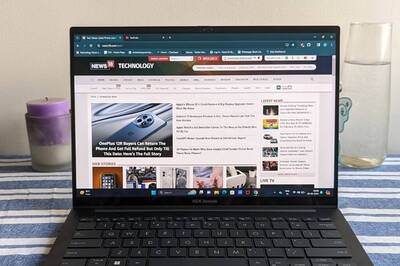
views
What does “bing chilling” mean?
“Bing chilling” is the phonetic pronunciation of “ice cream” in Mandarin. The phrase refers to a viral video of John Cena sitting in a car and eating ice cream, while promoting his film Fast & Furious 9. Cena is fluent in Mandarin, but he mispronounces “冰淇淋 (bīng qílín)” several times throughout the video. Since then, young people on social media have started using “bing chilling” as a neutral-positive response to any question. The first syllable 冰 (bīng) is the word for “ice” in Chinese, while the other two syllables come from the English word “cream.”
Origin & Spread of “Bing Chilling”
“Bing chilling” stems from a 2021 video of John Cena speaking Mandarin. On May 21, 2021, Cena uploaded the video on Weibo, China’s second largest social media platform. Many users thought his pronunciation of “冰淇淋 (bīng qílín)” was funny, and they began posting translation videos on YouTube. Eventually, people began making edits, parodies, and remix memes of the video. The Mandarin transcription of the video: “早上好中国. 现在我有冰激淋 我很喜欢冰激淋. 但是《速度与激情9》比冰激淋.” The English translation of the video: “Good morning, China. Now I have ice cream. I like ice cream very much, but Fast & Furious 9 is better than ice cream.” The phonetic transcription of the video: “Zǎoshang hǎo zhōngguó. Xiànzài wǒ yǒu BING CHILLING. Wǒ hěn xǐhuān BING CHILLING dànshì sùdù yǔ jīqíng 9 bǐ BING CHILLING."
The audio from John Cena’s video went viral on TikTok in November 2022. The dialogue from Cena’s Weibo video gained popularity after a bunch of creators posted videos delivering his lines in Mandarin. On November 14, 2022, TikTok user @giapaoohehe posted a video that garnered over 4 million views and 300,000 likes in 4 days. Similarly, @alfalis posted a video with the dialogue that gathered over 13 million views and 2.7 million likes in almost 3 days. The TikTok trend centers around making fun of John Cena’s pronunciation of “冰淇淋 (bīng qílín),” rather than an authentic Mandarin pronunciation.
How are people using “bing chilling?”
Some use “bing chilling” as an adjective to say something is “chill.” No matter what you’re talking about, you can use “bing chilling” to describe something as “chill,” which is slang for relaxed and calm. It’s a silly response that’ll make your friends laugh and spice up a dull conversation. You: “How was the party?”Them: “Bing chilling ????” You: “What’s the vibe tonight?”Them: “Bing chilling ????️”
Others use “bing chilling” as a verb to express that they’re “chilling.” In this context, the term “chilling” means you’re relaxing and not doing anything too serious. Use “bing chilling” if you’re making dinner, reading a book, or watching a movie at home. You: “What are you up to?”Them: “Just bing chilling ????” You: “How was your weekend?”Them: “I was bing chilling.”
Social media users include the “bing chilling” dialogue in their posts. On Instagram and TikTok, many users caption photos of ice cream with the phonetic transcription of John Cena’s video. They also use the phrase “bing chilling” to make memes, or add the viral audio in the background of funny videos.
Is it appropriate to say “bing chilling?”
It depends on context, but “bing chilling” may come across as racist. While the phrase is used as a nondescript answer in casual situations, some believe “bing chilling” is used by non-Asian people to make fun of the Chinese language, and to a wider extent, Asian people. On the Internet, the phrase often appears on photos and videos that feature any type of East or Southeast Asian person, even if they are not Chinese. In this case, using the term is the equivalent to referring to all Asians as Chinese—it comes across as ignorant and offensive.




















Comments
0 comment